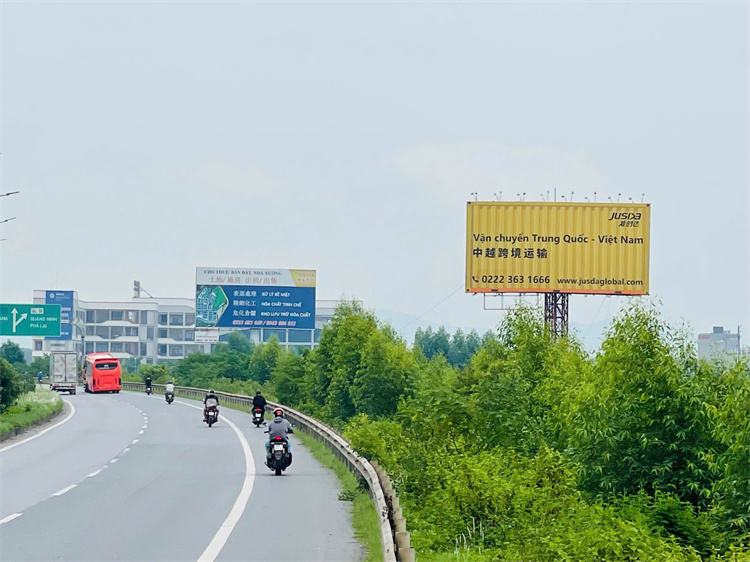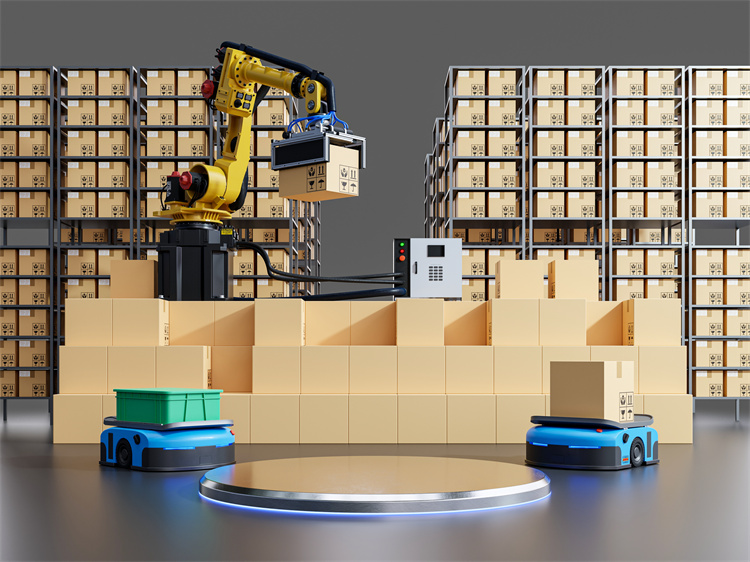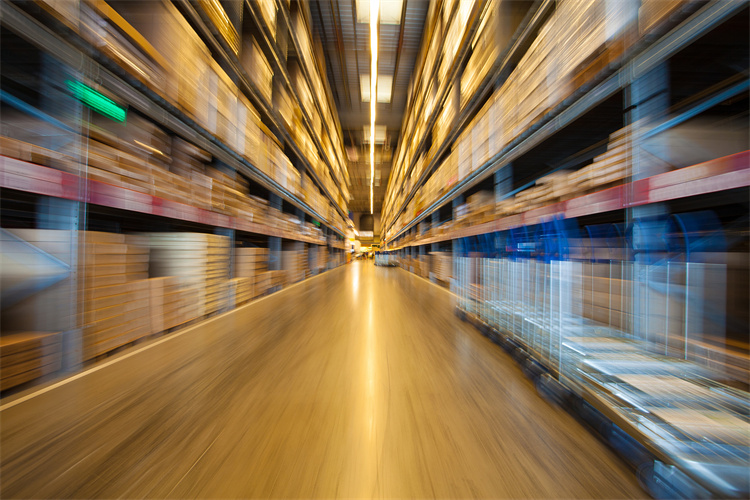3 Key Benefits of Modern Warehouses in Vietnam

Vietnam's warehouse market is experiencing rapid expansion, driven by several key factors. The surge in foreign investment and the growing demands of e-commerce have significantly contributed to this growth. The modern warehouse in Vietnam is increasingly sought after due to its ability to integrate advanced logistics solutions and technologies. JUSDA, a global leader in supply chain services, plays a pivotal role in this landscape. With its extensive expertise and innovative approaches, JUSDA supports the evolving needs of the logistics and supply chain industry in Vietnam.
Enhanced Efficiency and Technology Integration in Modern Warehouses in Vietnam

Modern warehouses in Vietnam have embraced cutting-edge technologies to boost efficiency and streamline operations. This transformation has been pivotal in meeting the growing demands of e-commerce and foreign investments.
Automation and Smart Systems in Modern Warehouses in Vietnam
Automation plays a crucial role in enhancing operational efficiency. Modern warehouses in Vietnam utilize automated systems to handle repetitive tasks, reducing human error and increasing speed. For instance, automated guided vehicles (AGVs) transport goods within the warehouse, minimizing manual labor. Robotics and conveyor systems further optimize the movement of products, ensuring timely deliveries.
Impact on Operational Efficiency
The integration of automation in modern warehouses in Vietnam leads to significant improvements in operational efficiency. Automated systems reduce the time required for order processing and inventory management. This efficiency translates into cost savings and increased productivity. Companies can allocate resources more effectively, focusing on strategic growth rather than mundane tasks.
Examples of Technology in Use
Several technologies exemplify the advancements in modern warehouses in Vietnam. Warehouse Management Systems (WMS) provide centralized control over inventory data, enabling precise product placement and retrieval. Handy terminals facilitate real-time data entry, ensuring accurate stock levels. These technologies enhance the overall logistics services, making operations smoother and more reliable.
Data-Driven Decision Making
Data-driven decision-making has become a cornerstone of modern warehouse operations in Vietnam. By leveraging analytics, companies gain valuable insights into their supply chain processes, allowing for informed decisions that drive efficiency and growth.
Role of Analytics in Warehousing
Analytics play a vital role in optimizing warehouse operations. They provide a comprehensive view of inventory levels, order patterns, and customer preferences. This information helps businesses anticipate demand fluctuations and adjust their strategies accordingly. Predictive analytics enable proactive decision-making, reducing the risk of stockouts or overstocking.
Case Studies and Success Stories
Case Study: A Leading E-commerce Platform implemented data analytics in its modern warehouse in Vietnam. The platform experienced a 20% reduction in delivery times and a 15% increase in customer satisfaction. By analyzing order trends, the company optimized its inventory management, ensuring products were always available when needed.
Another success story involves a global logistics provider that utilized data analytics to enhance its warehousing operations. The provider achieved a 30% improvement in picking accuracy, resulting in fewer errors and returns. This success underscores the transformative power of data-driven strategies in modern warehouses in Vietnam.
Increased Capacity and Flexibility
Modern warehouses in Vietnam are experiencing a surge in capacity and flexibility, driven by the increasing demands of various industries. This growth is essential for meeting the needs of both local and international markets.
Cold Storage Demand
Importance for Perishable Goods
Cold storage facilities play a crucial role in preserving perishable goods. They ensure that products like seafood, dairy, and fresh produce maintain their quality during storage and transportation. The seafood processing industry, in particular, relies heavily on these facilities to meet export standards and consumer expectations.
Market Trends and Statistics
Vietnam's cold storage market is expanding rapidly. By 2028, the total designed capacity is projected to exceed 1.7 million pallets, with 13 new projects planned between 2024 and 2028. This growth reflects the rising demand for advanced cold chain logistics, which is expected to reach a value of $295 million by 2025, growing at an annual rate of 12%. These developments highlight the increasing importance of modern warehouse solutions in Vietnam.
Scalability for Growing Businesses
Adapting to Market Changes
Modern warehouses in Vietnam offer scalability, allowing businesses to adapt, ensuring efficient use of resources. This adaptability is vital for businesses looking to respond quickly to changes in consumer behavior or supply chain disruptions.
Examples of Flexible Solutions
Several modern warehouses in Vietnam provide flexible solutions to accommodate growing businesses. For instance, modular storage systems allow companies to adjust their space requirements without significant investments. Additionally, shared warehousing options enable smaller businesses to benefit from state-of-the-art facilities without the burden of owning a large space. These solutions exemplify how modern warehouses in Vietnam support business growth and innovation.
Strategic Location and Connectivity

Modern warehouses in Vietnam benefit significantly from their strategic locations and connectivity. These factors play a crucial role in enhancing the efficiency of logistics operations and supporting the country's growing trade activities.
Proximity to Key Markets
Vietnam's modern warehouses are strategically positioned near key markets, providing numerous advantages for businesses involved in export and import activities.
Advantages for Export and Import
Reduced Transportation Costs: Warehouses located close to major ports and industrial zones minimize transportation costs. This proximity allows businesses to move goods quickly and efficiently, reducing lead times and enhancing competitiveness in international markets.
Faster Delivery Times: The strategic placement of modern warehouses in Vietnam ensures faster delivery times. Companies can respond promptly to customer demands, improving service levels and customer satisfaction.
Improved Inventory Management: Proximity to key markets enables better inventory management. Businesses can maintain optimal stock levels, reducing the risk of overstocking or stockouts.
Regional Connectivity Benefits
Access to ASEAN Markets: Vietnam's location within the ASEAN region provides access to a vast market. Modern warehouses in Vietnam serve as hubs for distributing goods across Southeast Asia, leveraging regional trade agreements and partnerships.
Enhanced Infrastructure: The Vietnamese government has invested heavily in infrastructure development. Improved road networks, ports, and airports facilitate seamless connectivity, supporting the efficient movement of goods.
Integration with Global Supply Chains: Modern warehouses in Vietnam integrate with global supply chains, offering businesses the ability to connect with international partners and customers. This integration enhances the country's role as a key player in global trade.
Regulatory Openness
Vietnam's regulatory environment supports the growth of modern warehouses, attracting foreign investment and fostering industry development.
Government Policies Supporting Growth
Incentives for Foreign Investors: The Vietnamese government offers incentives to attract foreign investors in the warehouse sector. These incentives include tax breaks, reduced land lease fees, and streamlined administrative procedures.
Supportive Urban Planning: Regulations ensure that modern warehouses in Vietnam comply with urban planning and safety standards. Warehouses must maintain safe distances from residential areas, schools, and hospitals, ensuring community safety and environmental sustainability.
Customs Department Approval: Establishing a bonded warehouse in Vietnam requires approval from the Customs Department. This process ensures that warehouses meet all regulatory requirements, facilitating smooth operations and compliance.
Impact on Foreign Investment
Increased Investor Confidence: The regulatory openness in Vietnam boosts investor confidence. Foreign enterprises view Vietnam as a favorable destination for establishing modern warehouses, contributing to the sector's rapid growth.
Diverse Investment Opportunities: Vietnam's regulatory framework creates diverse investment opportunities in the warehouse sector. Investors can explore various segments, including cold storage, e-commerce fulfillment centers, and bonded warehouses.
Long-term Growth Potential: The supportive regulatory environment positions Vietnam as a long-term growth market for modern warehouses. Investors can capitalize on the country's economic development and expanding trade activities.
Modern warehouses in Vietnam offer numerous benefits, including enhanced efficiency, increased capacity, and strategic location advantages. These factors create a fertile ground for investment and growth in the warehousing sector. The potential for expansion is immense, driven by the rising demands of e-commerce and foreign investments.
Supply Chain Manager, Client A: "The partnership with JUSDA has transformed our supply chain operations significantly. We now operate with greater agility, reduced costs, and improved customer satisfaction."
JUSDA stands out with its innovative supply chain solutions, supporting businesses in navigating this dynamic landscape effectively.

JUSDA Solutions
To provide you with professional solutions and quotations.
See Also
Automated Future: Benefits of High-Tech Manufacturing Warehouses
Essential Business: Warehouse Automation Importance
Logistics Robotics Power: Enhancing Warehouse Efficiency
Revealing JUSDA's Efficiency: New Warehousing Facilities
Explaining Robotic Automation: Boosting Warehouse Efficiency
